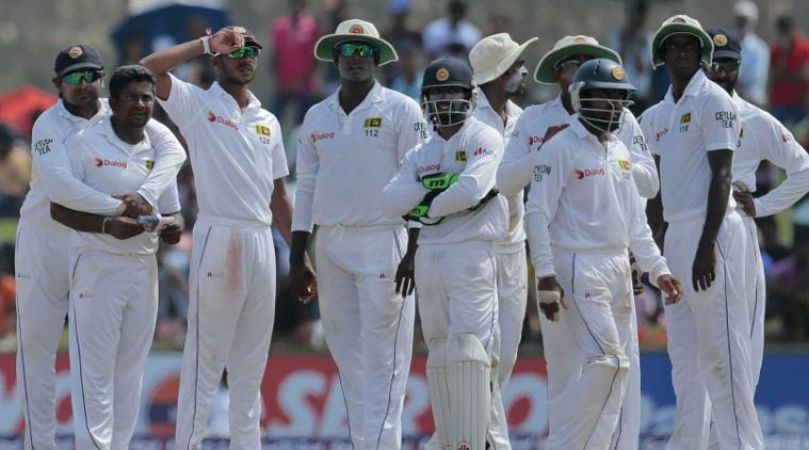
Sri Lankan team refused to return to the ground on the third day of the second Test against the West Indies on Saturday, as the umpire changed the ball. The umpires Aleem Dar and Ian Gold had instructed to change the ball before the start of the third day because they were not satisfied with the position of the ball. The ball had to be used for two days and the umpires felt that the ball has tampered, so they decided to play a match with the second ball on the third day.
In reply to Sri Lanka's 253 runs, West Indies made 118 for two wickets in their first innings. The Sri Lankan team opposed the decision of the umpires and refused to go to the ground. After a discussion between the umpires, match referee Javagal Srinath and Sri Lankan captain Dinesh Chandimal, the match could start from about 90 minutes late. If he did not come to the ground, then the referee could have accused the team for ball tampering.
For not coming to the ground, Sri Lanka got a penalty of five runs and five runs were added to the West Indies score. This is not the first time when a team refused to come on the field as a protest.
First such incident in cricket history happened in 2006. At that time, Pakistan did the same in the Test match against England. When umpire Darrell Hair and Billy Doctrove accused Pakistan of ball-tampering. After this, they had to lose five penalty runs. The Pakistan team had refused to come to the ground after tea on the fourth day of its test match.
Also Read:
FIFA 2018 Brazil vs Switzerland: Zuber's goal leads to poor draw
Yuvraj Singh claims that this team will win FIFA World Cup 2018
Team India offers Eid's biggest 'gift' to Afghan players